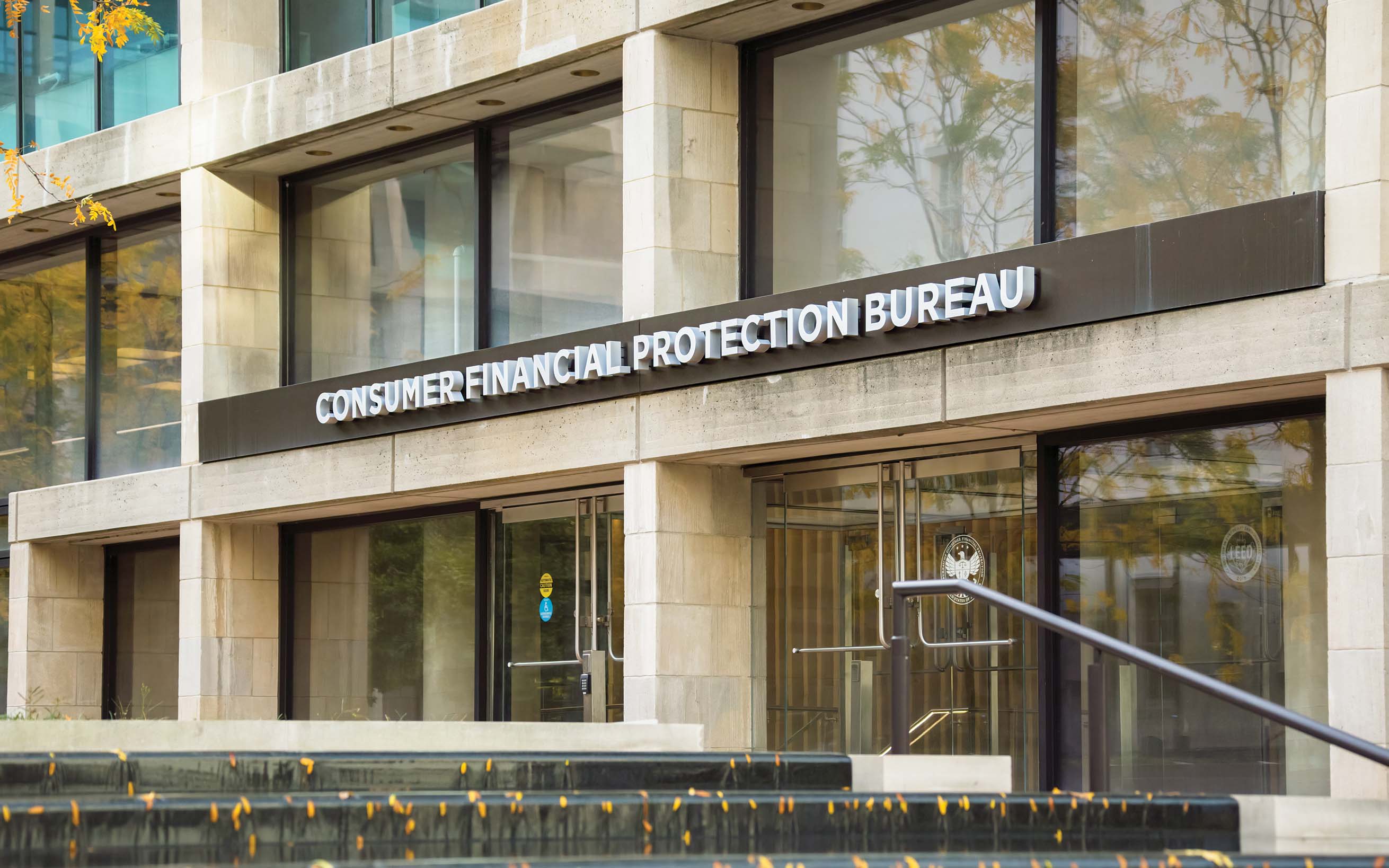While the political landscape in Washington, D.C., has changed considerably over the past year, ICBA continues to work with regulators and lawmakers on both sides of the aisle for the betterment of community banks and their customers.
11 hot-button issues you should know about
September 01, 2021 / By Katie Kuehner-Hebert
While the political landscape in Washington, D.C., has changed considerably over the past year, ICBA continues to work with regulators and lawmakers on both sides of the aisle for the betterment of community banks and their customers.
While the political landscape in Washington, D.C., has changed considerably over the past year, ICBA continues to work with regulators and lawmakers on both sides of the aisle for the betterment of community banks and their customers.
ICBA believes Washington is willing to give serious consideration to community bankers’ stances on key legislative and regulatory issues because “community banking is bipartisan,” says Aaron Stetter, ICBA’s executive vice president of policy and political operations.
“Generally speaking, our positions tend to have broad bipartisan support,” he says. “We look forward to advancing those positions that will not only benefit community banks, but also the small businesses and communities they represent.”
ICBA needs your help as a community banker to advance these common sense reforms. Here are some of the top regulatory and legislative issues that ICBA is fighting for.
1. A federal safe harbor
ICBA supports the Secure and Fair Enforcement (SAFE) Banking Act, which would create a safe harbor from federal sanctions for financial institutions that serve cannabis-related businesses in states where cannabis is legal.
“It’s an incredibly important public safety issue to allow cannabis-related businesses access to the banking system, so they can avoid dealing exclusively in cash,” Stetter says. “Community banks need this new law because they also serve ancillary businesses like accountants, law firms, HVAC companies, plumbers and electricians that do business with cannabis-related businesses.”
While the House version passed in April (H.R. 2215), the Senate is in disagreement over how to proceed with respect to broader cannabis-related matters, says ICBA’s Brian Cooney, senior vice president and legislative counsel.
“The progressive leaders don’t think it goes far enough. They want more social justice reforms, including legalizing marijuana at the federal level and expunging marijuana-related convictions on people’s records,” he says. “But when those provisions are added … it makes the legislation much more controversial. We’re hoping those proposals get considered separately, and then the Senate can revisit the SAFE Banking Act, which has strong bipartisan support.”
2. Closing the ILC loophole
ICBA believes Congress needs to act to close the industrial loan company (ILC) loophole in the Bank Holding Company Act, which allows fintechs and other commercial companies to own ILCs chartered by a handful of states without being subject to consolidated federal supervision.
“ICBA has been opposing [Japanese e-commerce giant] Rakuten from getting an ILC charter,” says Christopher Cole, ICBA executive vice president and senior regulatory counsel. “In the meantime, the FDIC in December came out in favor of ILC parent companies, but we’re still advocating for the closing of the ILC loophole in the law, and we’re trying to get something done legislatively to change this. You’ll see more about this next year.”
3. The ECORA Act
ICBA supports the Enhancing Credit Opportunities in Rural America (ECORA) Act of 2021 (H.R. 1977 and S. 2202). This bipartisan legislation, introduced in March, would create tax incentives for ag and rural residential lending. The bill’s provisions would exempt from taxation interest on loans secured by agricultural real estate and income from rural residential mortgages in communities of fewer than 2,500 people.
“ECORA is about increasing a community bank’s ability to serve more farmers, ranchers and rural homeowners by providing them lower interest rates and better lending terms,” Stetter says.
4. Fair lending and consumer protection
Under President Biden, regulators have clarified the sex discrimination prohibition under the Equal Credit Opportunity Act (ECOA) and Regulation B. That definition now includes discrimination associated with sexual orientation, gender identity, an applicant’s social or other associations, and actual or perceived nonconformity with traditional gender- and sex-based stereotypes. “However, such data for loans isn’t something that’s always available or clear,” says Lilly Thomas, ICBA executive vice president and senior regulatory counsel.
Biden in January issued an executive order directing the Department of Housing and Urban Development (HUD) to explore the impact of the “disparate impact standard” rule that the Trump administration instituted in 2020. HUD then issued a proposal to return the disparate impact standard to the standards set under the Obama administration. Thomas says this will likely result in more scrutiny on the impact of bank loan portfolios.
Per requirements in Dodd-Frank Section 1071, the CFPB under the Trump administration began developing reporting requirements on small business lending that are similar to those required by the Home Mortgage Disclosure Act (HMDA). In 2020, the agency outlined narrower thresholds for reporting HMDA data. Now, under Biden, Thomas anticipates these thresholds are “going to be broadened or [become] more onerous, covering the greatest number of banks.”
Regulators are placing more emphasis on the inclusion of unbanked and underbanked communities. “We’re seeing some pilot programs from the FDIC, some voluntary programs and initiatives, but it could change to mandates,” Thomas says. “Maybe [mandates for] a barebones account with little or no fees for services [or] things that encourage unbanked and underbanked individuals to open an account at a bank.”
5. Reporting “tax cheats”
President Biden’s financial year 2022 budget includes enhanced tax reporting for financial institutions in an aim to catch customers who are “tax cheats,” Cooney says. The proposal would require banks to report all account inflows and outflows to the IRS annually.
“We strongly oppose this,” he says. “It’s another compliance burden for community banks. We also don’t want banks to come between their customers and the IRS. It would harm customer relationships.”
According to Stetter, it would be very difficult for banks to administer. “It’s not appropriate,” he says. “If the IRS wants to go after tax cheats, they should do it themselves.”
6. Climate-related risk
Climate change is “on the front burner,” says Cole. The Treasury Department now has a climate czar, John Morton, who is overseeing climate-related policy work connected to climate transition finance, climate-related economic and tax policy, and climate-related financial risks. The Securities and Exchange Commission (SEC) is also considering mandatory disclosures on climate risk for publicly held companies.
“One might understand the justification for very large, publicly held companies having to disclose climate risks to their shareholders, but when you’re talking about small banks, the justifications become less substantive, less legitimate,” Cole says. “The regulators are now looking at whether every bank has to make such disclosures. Then they need to figure out how to come up with a set of disclosures that would actually address the risks that banks are taking.”
7. Cryptocurrency guidance
The OCC is collaborating with the Federal Reserve and the FDIC to create a “regulatory perimeter” that clearly outlines how banks can navigate cryptocurrency and other emerging digital assets, says Brian Laverdure, ICBA’s vice president of payments and technology policy. There has also been a push by some lawmakers to pursue new legislation addressing ongoing concerns about the lack of clarity around cryptocurrencies and other digital assets.
“There are now thousands of digital coins and tokens in existence, and it is important to recognize that they have different characteristics and functions,” Laverdure says. “The regulation of digital assets cannot be handled by one agency alone. It will require cooperation and collaboration across multiple regulatory bodies to develop a comprehensive approach.” With more clarity, more community banks may be able to address customer needs for crypto-related services, he adds.
8. Faster payments
In 2023, the Federal Reserve plans to launch FedNow, an instant payments service that will give recipients full access to funds within seconds, Laverdure says.
“Next year will be a critical time for bankers to educate their employees about FedNow, work with their core processors to ensure readiness and develop strategies to help customers benefit from this new payment system, Laverdure says.
Same Day ACH also continues to grow, which is “a great option” for community banks because the ACH Network reaches every institution
in the country, he adds.
9. Central bank digital currency (CBDC)
The Federal Reserve is entertaining the idea of offering a digital version of the U.S. dollar that would provide some of the technological benefits of cryptocurrencies, says Nasreen Quibria, vice president of emerging payments and technology policy for ICBA.
“Depending on how the central bank digital currency is architected, it could threaten community banks’ business model and revenue,” Quibria says. “During periods of financial stress, customers could pull out large amounts of deposits and convert them to digital dollars, making less money available to provide credit to the public.”
The Federal Reserve plans to solicit industry comments based on the publication of a discussion paper that will explore the implications of a CBDC, she says. ICBA is closely monitoring research and development in this area.
10. Permissioned data access
Earlier in the year, the CFPB requested comments on advanced notice of proposed rule-making related to consumer access to financial records, Quibria says. There is concern that a bill could be introduced in Congress to limit screen scraping to retrieve a user’s bank account information, which can put customers at unnecessary risk and instead require the use of more secure APIs, or application programming interfaces.
However, community banks have been slow to adopt API technology, mainly because they are highly dependent on core banking platforms and other solution providers for API integration, Quibria says. As such, an abrupt prohibition of screen scraping could have unintended consequences for smaller institutions.
“ICBA advocates for standards implementation that should reflect industry progression and not leave community banks at a disadvantage from any asymmetry of capabilities and resources,” she says.
11. Artificial intelligence bias
Banking regulators in April requested information from banks and comments from interested parties on whether potential AI bias can be addressed within existing fair lending regulations or whether new regulations need to be introduced.
“ICBA’s perspective is that regulators can address potential AI bias within the existing framework, as there is some flexibility built into it. As they do with all forms of lending, banks will continue to ensure that loans underwritten with AI do not create a disparate impact,” says Mickey Marshall, ICBA’s director of regulatory legal affairs.
Regulators are also waiting to see if banks increase their use of AI to expand access to credit by developing underwriting algorithms to consider nontraditional information like rent and utility payments, Marshall says. If this comes to pass, regulators may give banks a wider berth.
Other key issues to watch
Implementing the Corporate Transparency Act (CTA)
Regulators are now working to implement the CTA, signed into law on Jan. 1 as part of the National Defense Authorization Act. The CTA requires persons who form corporations or limited liability companies to report the beneficial owners of those corporations or limited liability companies to Financial Crimes Enforcement Network (FinCEN) when they are formed, relieving community banks of the burden of collecting this information from their customers.
Modernizing the Bank Secrecy Act (BSA)
ICBA recommends raising the currency transaction report threshold from $10,000 to $30,000 and indexing future increases on an annual basis. ICBA also supports the creation of a tax credit to offset the cost of BSA compliance.
Limiting credit unions’ power grab
An increasing number of credit unions are acquiring community banks across the country by leveraging their tax-exempt status to offer very attractive purchase terms to community banks. That’s an abuse of their tax-exempt authority, which is why ICBA is demanding that Congress hold hearings on these deals.
Postal banking
ICBA is opposed to any proposal that would allow the U.S. Postal Service to offer financial products and services.
Tax code
ICBA supports preserving the 2017 tax cuts and 21% corporate tax rate.
Why community bankers are the best grassroots messengers
While ICBA staff work diligently with regulators and lawmakers on behalf of member banks, direct grassroots advocacy from community bankers is key to moving the needle.
“It’s a symbiotic relationship,” says Paul Merski, group executive vice president of congressional relations and strategy at ICBA. “It’s crucial that the nationwide grassroots constituency has contact with the lawmakers who represent them and to weigh in on how issues impact banks, as well as bank customers, to make sure our issues advance.”
Community bankers have intimate knowledge of their local economy, so their opinions “carry considerable clout with members of Congress,” says Aaron Stetter, ICBA’s executive vice president of policy and political operations.
That’s why community banks are ICBA’s “very best messengers,” says Brian Cooney, senior vice president of legislative counsel. “They can speak from a first-person experience about how legislative proposals in Washington will positively impact their customers or negatively impact banks’ ability to serve their customers. We encourage all community bankers to be active from a grassroots standpoint.”
Members can learn more about how to best make an impact locally at ICBA’s grassroots action center.
“When ICBA needs a call to action for community bankers to contact members of Congress,” Cooney says, “please answer that call.”
Subscribe now
Sign up for the Independent Banker newsletter to receive twice-monthly emails about new issues and must-read content you might have missed.
Sponsored Content
Featured Webinars
Join ICBA Community
Interested in discussing this and other topics? Network with and learn from your peers with the app designed for community bankers.
Subscribe Today
Sign up for Independent Banker eNews to receive twice-monthly emails that alert you when a new issue drops and highlight must-read content you might have missed.
News Watch Today

Join the Conversation with ICBA Community
ICBA Community is an online platform led by community bankers to foster connections, collaborations, and discussions on industry news, best practices, and regulations, while promoting networking, mentorship, and member feedback to guide future initiatives.












